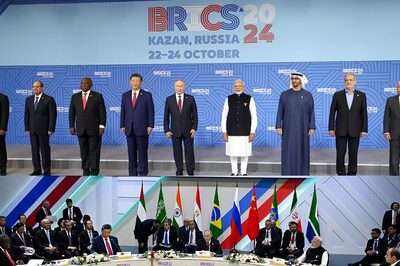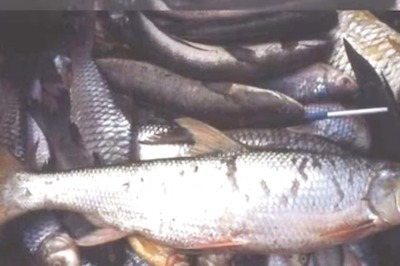
views
KOCHI: “We have to draw up plans to study the influence of the warming Indian Ocean on monsoons, cyclones and one-day heavy rainfall events that lead to flash floods with measurements and computer modelling. The atmosphere and ocean interact closely during the active-break cycle of the monsoon on which modelling studies should be undertaken so as to predict monsoons well in advance,” said P V Joseph, Emeritus Professor, Cochin University of Science and Technology (Cusat) and former Director of India Meteorological Department.He was speaking on ‘Role of Indian Ocean in Climate Change’ at the two-day national seminar on ‘Climate Change and Variability’ organised by the Department of Atmospheric Sciences, Cusat. The seminar was inaugurated by Cusat Vice-chancellor Ramachandran Thekkedath on Monday.P V Joseph said the Indian Ocean is closely related to the climate change in India. The normal date of monsoon onset over Kerala is June 1. But when sea surface temperature has a warm anomaly south of the equator or a cold anomaly north of the equator (usually both occur together) monsoon onset is delayed at times by three weeks. It is observed that westerlies are slowly moving south over Asia and is likely to increase the frequency of monsoon droughts. Equatorial Indian Ocean’s surface temperature is seen to be warming fast over the past 50 years. This rapid warming has decreased the strength of the south westerly monsoon current flowing through peninsular India over the same period, resulting in steady decrease of monsoon depressions. India faces monsoon droughts on a large-scale when monsoon winds over the Indian Ocean are weak resulting in warm sea surface temperature.He also said that monsoon has an epochal behaviour. A 30-year period, such as 1901-1930 or 1961-1990, has frequent monsoon droughts (once in three years). The following 30-year periods (such as 1931-1960) have droughts only once in 15 years. This behaviour of monsoon is mostly due to the change in sea surface temperature of Atlantic and Pacific oceans. This is an area that requires urgent research, he added.Prof Mohankumar, Head of the Department of Atmospheric Sciences, Cusat, welcomed the gathering and K R Santosh, associate professor, proposed the vote of thanks. More scientific sessions will be held on Tuesday.




















Comments
0 comment